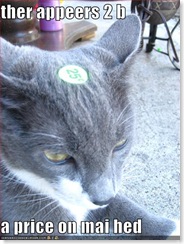It’s been a while since we’ve had one of these, but they never entirely go out of fashion: the English Spelling Society commissions a report and finds that (gasp!) Facebook and chatrooms and forums and texting and stuff are encouraging children to spell words incorrectly!
Now, to be fair, I fully expect they’ve got a dataset tucked away that supports that statement, and I’m not going to try and claim that internet communication has no influence over the way young people use language. However, I find it unlikely that the English Spelling Society would have published a report that said the internet was making no difference to literacy at all, in the same way we’re unlikely to see a memo from the Discovery Institute saying “actually, nix all that earlier stuff, these fossils are pretty damned convincing after all!” Caesar hears what is pleasing to Caesar, after all.
And then there’s the research that claims exactly the opposite, and points out that while most people’s spelling and grammar may not be perfect, the rise of the internet and the infinite number of channels for text-based communication it provides mean that we’re writing far more than we ever did before. Granted, that writing may not conform to Victorian-era ideals of “correct” communication, but the world has changed a lot since those ideals were enshrined; surely communication should be assessed on how effective it is in each given circumstance? Maybe I’m being overly Darwinian about this, but it strikes me that communication methods which didn’t communicate effectively wouldn’t have much chance to get traction in a fast-moving culture like ours.
Or, to put it another way: the kids spell funny because that works for them, and I suspect the horror this produces in older generations of linguists is at least partly to do with feeling shut out by this new linguistic shift, much like the flashes of paranoia one experiences in restaurants and bars abroad where you momentarily think everyone is talking about you in a language you can’t follow clearly*. “Street slang” has always been touted as a symptom of imminent societal collapse (again, at least as far back as the Victorian era, as far as I know)… but here we still are, inflating the sphere of human knowledge despite the kids using weird words and improper spellings. Go figure, AMIRITEZ?
And lets not forget that spellings and pronunciations have never basked in some arcadian stasis, solid and immovable against culture’s fluxing tides; look back just a few hundred years, and you’ll see a language so different to today’s that it seems almost laughable due to its unfamiliarity. Language changes, and it changes through being used. That’s not something to fear; in fact, it’s probably something to celebrate.
[ * OK, that may just be me, then. ]
